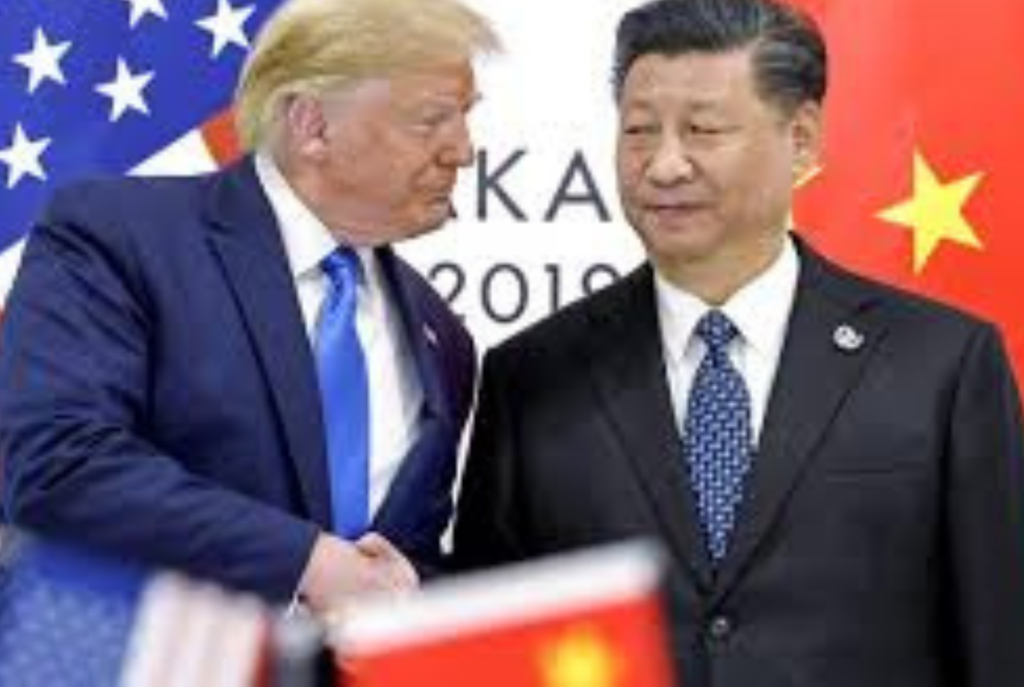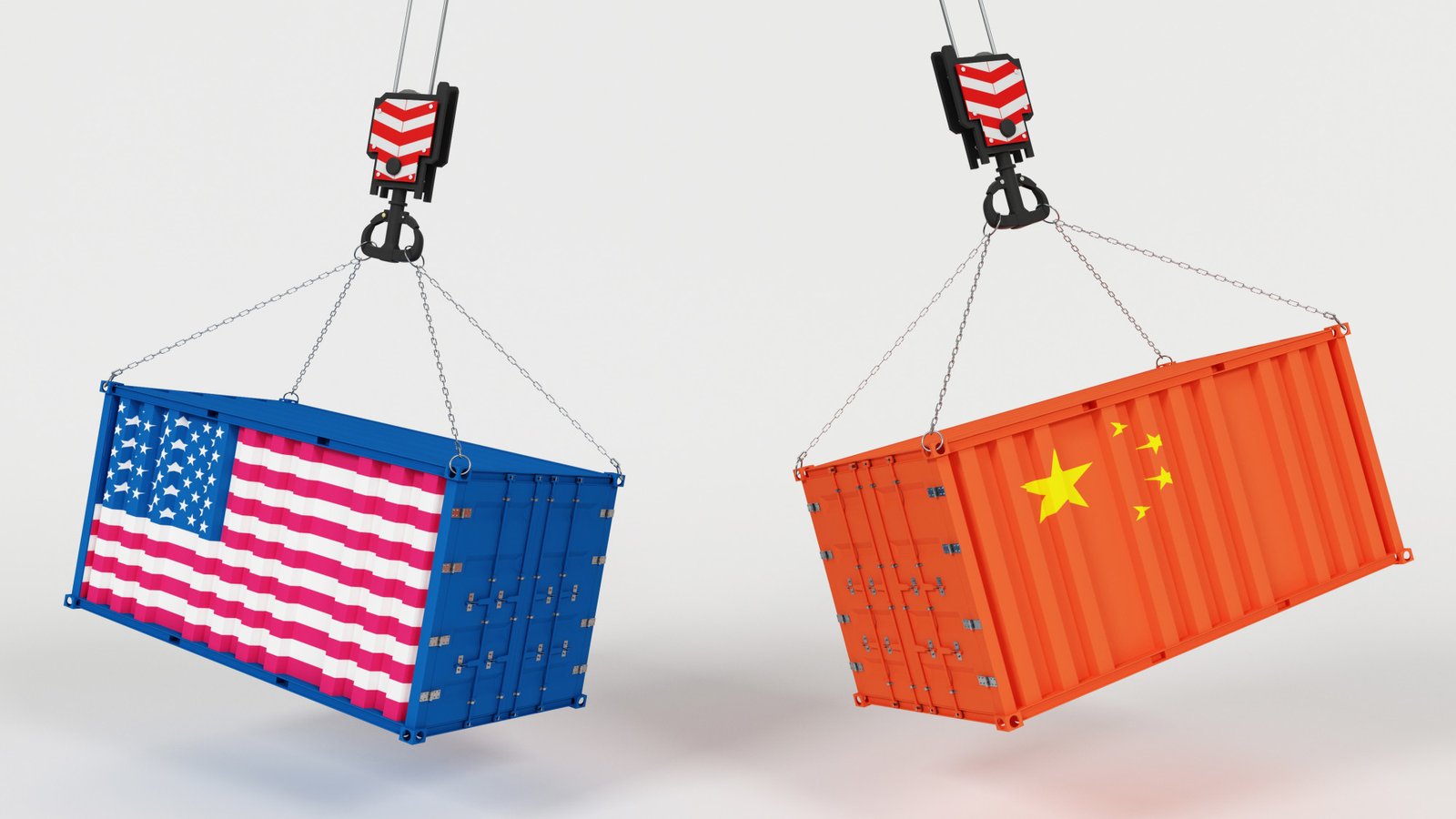
The United States adds dozens of businesses, including more than fifty based in China, on its export control list.
More than 50 Chinese enterprises are among the hundreds of companies the U.S. has added to its export control list, allegedly seeking sophisticated information in quantum technology, artificial intelligence, and supercomputing for military use.
China Rejects the Action
China responded to the U.S. adding more than 50 Chinese-based businesses to its export control list with protests on Wednesday. These businesses are reportedly trying to purchase advanced technologies for military applications, particularly in the areas of artificial intelligence, quantum technology, and supercomputing.
Almost 80 businesses were listed on the U.S. Department of Commerce’s Bureau of Industry and Security (BIS) “Entity List,” which also includes businesses from Taiwan, Iran, Pakistan, South Africa, and the United Arab Emirates in addition to Chinese corporations.
Chinese Businesses Taking Part
The entities on the list include subsidiaries of Six Inspur Group, a prominent Chinese provider of big data and cloud computing services that was included to the U.S. Entity List in 2023. The Beijing Academy of Artificial Intelligence was also included in the upgrade, despite its adamant opposition.
“We are surprised that a private non-profit scientific research organization has been added to the Entity List,” the research institute said in a statement. We urge the appropriate U.S. departments to rescind this baseless decision, which we vehemently condemn.”

Military Issues Voiced
According to a review committee, the Beijing Innovation Wisdom Technology Company and the Beijing Academy of Artificial Intelligence (BAAI) have created sophisticated computer chips and sizable AI models for military applications.
China’s Reaction to American Export Regulations
In a counterstatement, China’s Foreign Ministry said that the Entity List and other export restrictions were an abuse intended to “unfairly suppress Chinese businesses.” Additionally, the Ministry contended that these activities seriously injure the legitimate rights and interests of enterprises and endanger the security and stability of the global supply chain, in violation of both international law and the fundamental norms of international relations.
During a routine news briefing on Wednesday, Ministry spokesperson Gao Jiakun said, “China firmly opposes and strongly condemns this.”
Export Restrictions in the US and National Security Issues
In a notice, the U.S. Bureau of Industry and Security (BIS) clarified that its goal is to reduce China’s capacity to obtain and create “Exascale” or ultra-fast supercomputers, which are utilized in the creation of hypersonic weapons and other sensitive technology. The goal of the export restrictions is to keep China from using American-made products for military objectives. This includes halting the use of American-made equipment at South Africa’s Test Flying Academy to train Chinese soldiers and preventing Iran from obtaining unmanned aerial vehicles and other military hardware.

BIS’s “Foreign Direct Product Rule,” which permits the U.S. government to regulate the re-export and transfer of foreign-made goods that contain U.S. technology considered essential to national security, now applies to the listed corporations.
Trade Controls Are Tightened During the Trade War
The trade war that started during President Donald Trump’s first term is getting more intense as the Trump administration gets ready to raise tariffs once more next week. Trump has already raised import duties from China by 20%. He added on Monday that any nation buying gas or oil from Venezuela will have to pay a 25% import tax.
China, which purchases a sizable amount of Venezuela’s oil exports, has responded by enacting new tariffs on a number of American products and opening anti-monopoly probes against Google.
Furthermore, China has strengthened its sanctions policy by enacting a new law that permits it to freeze the assets of businesses that are targeted by Chinese penalties.

China’s Counterattacks and Increasing Conflicts
The ongoing trade tensions between the two economic giants have escalated significantly as a result of China’s response to the U.S.’s actions, which include not only imposing tariffs on a variety of American products but also initiating anti-monopoly investigations against companies such as Google. In addition, China has strengthened its sanctions regime by enacting a law that allows it to freeze the assets of foreign companies that are subject to Chinese sanctions, allowing it more tools to counteract the U.S.’s growing use of export controls and tariffs.
Global Consequences of the Trade War
Wide-ranging effects on the world economy result from the protracted trade dispute between the United States and China. Businesses doing business abroad face uncertainty as long as both countries maintain their tariffs and restrictions. These geopolitical tensions further strain global supply networks, which were already hampered by the COVID-19 epidemic.
Additionally, the global tech industry is probably going to be impacted by the growth of the Entity List and the tightening of export regulations. As they negotiate the difficulties of U.S. sanctions, businesses that depend on Chinese suppliers or manufacturing may see major setbacks. Furthermore, as each nation works to maintain its technological superiority in fields like artificial intelligence, quantum computing, and supercomputing, the action may result in increased technological decoupling between the US and China.
Prospects for U.S.-China Trade
The future of commercial relations between the United States and China is still unclear as both nations continue to slap economic sanctions on one another. Though domestic political pressure and national security concerns have hindered attempts, the Biden administration has demonstrated some readiness to engage diplomatically with China.
In the upcoming years, the effects of these trade and technology-related restrictions will be felt. Businesses everywhere will need to adjust to the changing trade environment, and many are searching for alternatives to reduce their exposure to possible disruptions brought on by the trade war between the United States and China. A more divided global economic system may force nations other than the United States and China to take sides, so they will need to manage these tensions carefully.
The global tech industry in particular will need to get ready for a future where innovation and collaboration may become increasingly difficult in the face of these tensions, as the U.S. and China anticipate continuing to advance their own technological innovations while trying to impede each other’s progress, thus escalating the geopolitical rivalry.











Leave a Reply